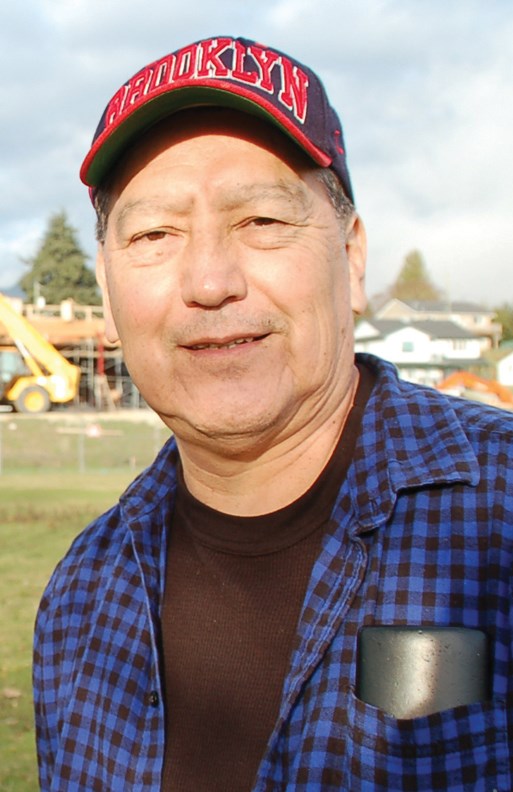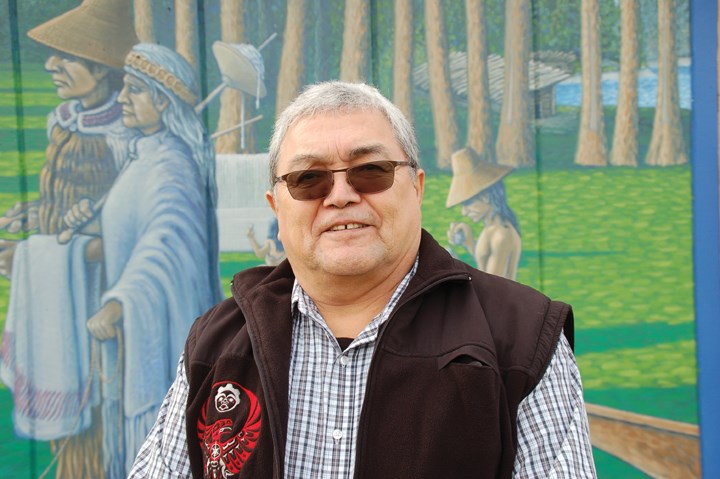The number of eligible voters in shíshálh Nation will effectively double in the next election after the band’s constitution is amended to give voting rights to non-resident members, newly elected chief Warren Paull said this week.
Paull, 62, was elected chief Feb. 25 in a close race against fellow councillor Robert Joe, who received 148 votes compared to Paull’s 162.
Elected to the four councillor positions were Selina August (186 votes), Keith Julius (183), Corey August (181) and Alvina Paul (156). Not elected were Melodie Pierre (144 votes), Carol Louie (142), Jason Myles (74) and Manuela Salinas (71).
The 313 votes cast, Paull said, was the band’s “highest turnout ever.”
A major point of controversy during the campaign was shíshálh’s constitutional requirement for band members to live on band lands in order to vote or run for office; a bylaw broadens the eligibility to include members who reside within traditional shíshálh territory (between Roberts Creek and the top of Jervis Inlet), but approximately half of the total band membership remains ineligible.
The rule forced two high-profile candidates out of the race – former councillor Ben Pierre Jr., because the band member who nominated him as a candidate for chief was not eligible to vote, and incumbent councillor Chris August, who was dropped from the list of council candidates because he resided in Squamish territory.

“We have to address this,” Paull said in an interview Tuesday. “I made a commitment at the all-candidates meeting (on Feb. 16) that we’ll get this done before the next election.”
The controversy, Paull said, “made for quite a spirited discussion. There were petitions floating around and accusations that this was tampering with an election … It opened up a real can of worms and I’m not willing to go through that again, so I’ve got an incentive to get that done.”
Changing the band’s constitution, he explained, will mean “a lot of community engagement” and getting the federal government to amend the Sechelt Indian Band Self-Government Act by an order in council, “so that those who are not normally residents on band land can vote. Every other band in Canada can do that – it doesn’t matter where they live.”
The constitutional change is just one of many challenges facing the new council. Another big one will be the relatively inexperienced council’s task to oversee the writing of new policies and procedures following a complete restructuring of band administration. That process started last year amid the “brouhaha” that climaxed in a one-week lockout in May.
“There’s no question that it’s going to be a challenge, but we’ve also put some checks and balances into it, in that next week we start a whole month of indoctrination. It’s something we’ve never done before … The first week, it’s all lawyers,” Paull said.
“We’ll get our house in order first and then we’ll get ambitious about being the engine that drives the Sunshine Coast.”
Having served on councils going back to the mid-’80s, Paull described himself and former councillor Keith Julius as “the old goats” who will be working with a young team that “brings a new dynamic” to the table. Selina August and Alvina Paul “spent a lot of time in administration and understand that process,” and Corey August, though new to band government, is “very knowledgeable, very driven. He thought he’d take this on as a challenge,” Paull said.
“I’m more than happy with the crew … What I really love about it is we’ve got two women on the council. So that hasn’t been done for a while. And having a female perspective on it is a great thing. It keeps all the testosterone in balance.”
One issue that divided the two candidates for chief was their views on pursuing reconciliation with the province, with Robert Joe being critical of that direction and Paull willing to see where it might lead and “whether or not there’s any desire to move forward with that particular discussion.”
Despite those differences, Paull said both sides ran clean campaigns.
“I have to thank both sides, both teams, that they decided that this was something that everybody wanted to do. Because given the rancor that happened all last year, everybody was tired of it – nobody wanted to do the mudslinging. It was great. Hats off to both teams for keeping it between the white lines.”
He added: “If you look at it, 14 votes isn’t a ringing endorsement. Both teams worked very hard to get the vote out. When Robert didn’t make it, there were a few people who were very disappointed, and that’s understandable. I know I have to reach out to them and make sure they’ve got a voice.”
Outside of politics, Paull was foreman at the gravel pit operation until retiring, after 25 years, in 2014. He ran for chief that year and lost to Calvin Craigan by seven votes.
The new council is sworn in on April 3.



